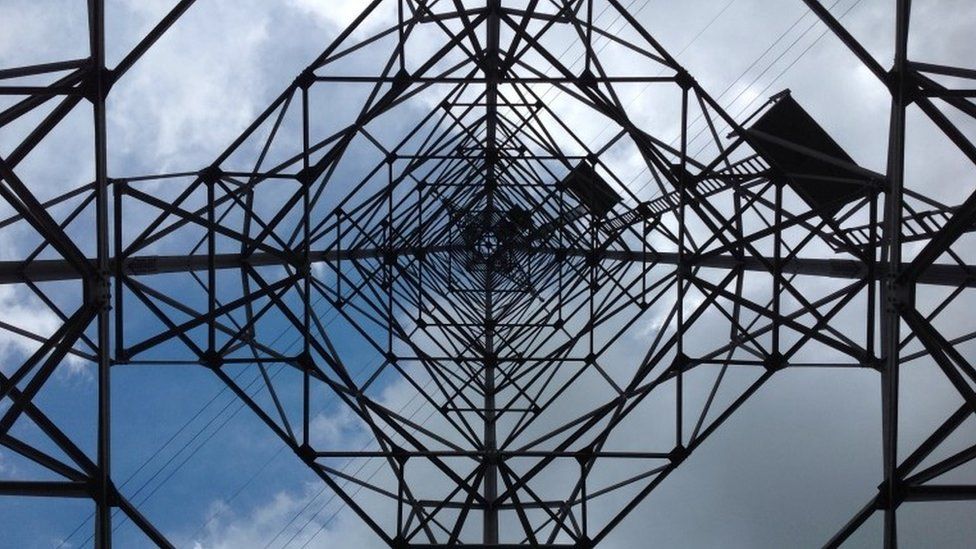UK power supplies enough for winter, says National Grid
- Published

Britain has enough gas and electricity to ensure there will be no blackouts through the cold winter months, according to the National Grid.
Gas supplies are expected to be "comfortable", while electricity margins, at 5.1%, are "manageable", the grid said in its Winter Outlook.
This means supply is expected to exceed peak demand by 5.1%.
The Grid may have to secure extra supplies to keep this margin, such as paying plants to remain on standby.
Without these measures, the margin would be 1.2%. With the additional measures, margins are at their lowest for seven years, and have deteriorated year on year. Over last winter, they were 6.1%.
"Our analysis suggests that electricity margins will continue to be tight but manageable throughout the winter period," said Cordi O'Hara, director of UK Market Operations.
"We have taken appropriate steps to support security of supply through the procurement of additional balancing services."
The Grid made similar provisions last winter.
Gas supplies are far more abundant. The Grid forecasts peak demand of 465 million cubic metres a day, with a potential supply of up to 613 million cubic metres.
"Keeping the lights on is non-negotiable," said Energy and Climate Change Secretary Amber Rudd. "National Grid has the right tools in place to manage the system this winter and we will ensure that they continue to do so in future."
Keeping the lights on: John Moylan, BBC industry correspondent
The government has announced new measures to ensure the lights stay on in the future.
It's making changes to the Capacity Market, a mechanism which pays owners of power plants a subsidy to guarantee having the plants available from 2018 onwards.
The changes will increase the "incentives and penalties" on firms which agree to build new power plants, but then fail to do so.
It follows reports this week that the only company to win a subsidy to build a new gas power plant as part of the Capacity Market is struggling to find investors.
Carlton Power, which is proposing to build a power station at Trafford in Manchester, has confirmed that the project will be delayed by at least a year.
'Crying wolf'
A number of power stations have closed down in recent years as they come to the end of their natural life. This has led to fears of blackouts in some quarters, with concerns that margins are getting too tight for comfort.
The GMB union accused the Grid of "complacency" and criticised as "bonkers" its policy of paying power stations to be on standby.
"That and bringing unused inefficient power production back into operation are the special measures National Grid is being forced to rely on to keep the lights on and the cost is added to consumers' bills," said national officer Brian Strutton.
But many experts believe fears of the lights going out have been exaggerated.
"The fact is that generation-related electricity outages are vanishingly rare - just one in the last 10 years," said Richard Black, director of the Energy and Climate Intelligence Unit.
"Almost all power cuts are down to problems with local distribution of electricity, caused by bad weather and other issues.
"Ten years of crying wolf on power cuts has probably served only to confuse the public, who will be entirely aware that their lights have stayed on."